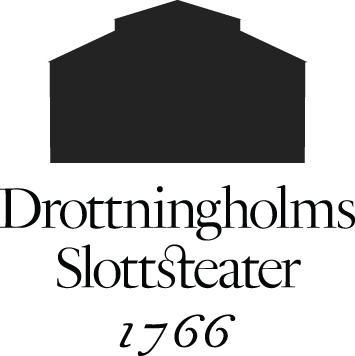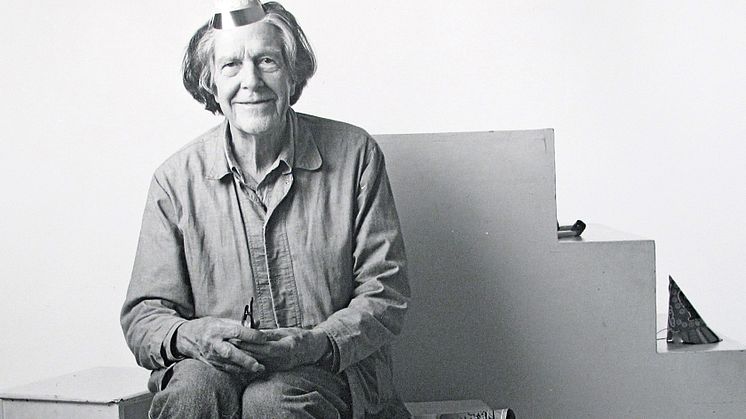Pressmeddelande -
Press invitation: International symposium at Drottningholm Court Theatre, September 16, about financial theatre and utopianism
Goldin+Senneby
Income and Come Out:
A symposium by Something You Should Know
Drottningholm Court Theatre's collaboration with national and international contemporary artists began earlier this year with the Swedish artist duo Goldin+Senneby and their performance Money will be like Dross. The performance is part of the art project The Nordenskiöld Model, about explorer and alchemist August Nordenskiöld, who secretly was hired by King Gustav III at Drottningholm Palace to make gold.
Now the performance Money will be like Dross is followed-up in an international symposium where concepts like financial theater and utopianism will be discussed. Goldin+Senneby has invited the French group Something You Should Know to curate the symposium.
PARTICIPANTS
Paris based art and philosophy group Something You Should Know, Belgian art initiative Agency, Laurence Duchêne-Zaoui lecturer in Economics at management schools in Paris, and Christine Gerrard a University Lecturer in English Literature at the University of Oxford. Please find more information about the participants below.
The symposium is held in English.
DATE & TIME
Sunday, September 16, 2012, at 01:00-06:00 PM (pause 03:15-04:00)
PLACE & PRICE
The Déjeuner Salon at Drottningholm Court Theatre, Drottningholm, Stockholm
Tickets SEK 90 kronor, booking through www.ticnet.se
Snacks and beverages can be purchased in the Déjeuner Salon
PRESS TICKETS
For press tickets please contact Eva Lundgren eva.lundgren@dtm.se
* Press photo: Alchemy furnace of August Nordenskiöld (1754-1792)
INTRODUCTION
Goldin+Senneby
Income and Come Out : A symposium by Something You Should Know,
with Agency (BE), Laurence Duchêne (FR) and Christine Gerrard (UK) at Drottningholms Slottsteater
As an arts symposium, "income and come out" – a temporary title made less ephemeral – will plug itself on the theater of economy. While the market of performance, instead of goods, has become an objective for transforming the production-based model, the global economy has grasped the performative through advocating connectivity, theatricality, youthfulness, speed, branding, imaging and imagination, and drafting an army of characters into performing who and what counts in the knowledge economy.
The recent work of artists Goldin+Senneby has performed these meta-narratives by coupling dramatic production as conceptual framing to "imaginary tactics such as speculation, utopia, magic and theatre.” These tactics including theatricality, narrativity and « trickality » will be expanded to the words and the works of : Agency, a Brussels based artist initiative by Kobe Mathys, which collects and mobilises collective debate on cultural objects or acts derived from lawsuits or controversies around their intellectual property ; Laurence Duchêne, activist and economist, co-author of L'Abstraction Matérielle. L'argent au delà de la morale et de l'économie which calls into play the oxymoron of Material Abstraction ; Christine Gerrard, Lecturer in English Literature at Oxford, focused on the financial revolution of the 1690's in its relation to language and literature.
“Something you should know : artists and producers" (since 2006).
Seminar conceptualised and organised by Patricia Falguières, Elisabeth Lebovici, Hans-Ulrich Obrist, Natasa Petresin-Bachelez within the framework of the Ecole des Hautes Etudes en Sciences Sociales (EHESS), Paris, France.
Agency, a Brussels-based initiative, constitutes a growing list of things that resist the split between the ontological classifications of "nature" and "culture". This list of things is mostly derived from juridical processes, lawsuits, cases, controversies, affairs and so forth involving intellectual property issues (copyrights, patents, trade marks, etc...).
Laurence Duchêne-Zaoui teaches economics in preparatory classes for management schools in Paris and is co-writer with Pierre Zaoui of L'abstraction matérielle. L'argent au-delà de la morale et de l'économie, published in january 2012, La Découverte.
Christine Gerrard is a University Lecturer in English Literature at the University of Oxford and a Fellow and Tutor at Lady Margaret Hall Oxford. She has published widely on politics and literature in the eighteenth century and is currently working on a study of the relationship between finance and literature in the eighteenth century and the present day.
Relaterade länkar
Ämnen
Regioner
Drottningholm Court Theatre was built in 1766 at the request of Queen Lovisa Ulrika. The wooden stage machinery is operated by hand. About 30 stage sets have been preserved, all decorated with themes from 18th century repertoire. The first golden age of the theatre was initiated by King Gustaf III in 1777. Together with actors like Monvel, the composers Naumann and Kraus, the ballet master Gallodier and the architect Desprez Gustaf used Drottningholm to inject new life into Swedish theatre and opera. After the king's death in 1792, the theatre was closed, but reopened in 1922. Today the yearly summer Opera Festival offers new productions of 17th and 18th century operas and attracts audiences from all over the world. In 1991 the World Heritage Committee of UNESCO designated the theatre as being of international cultural heritage significance. www.dtm.se



